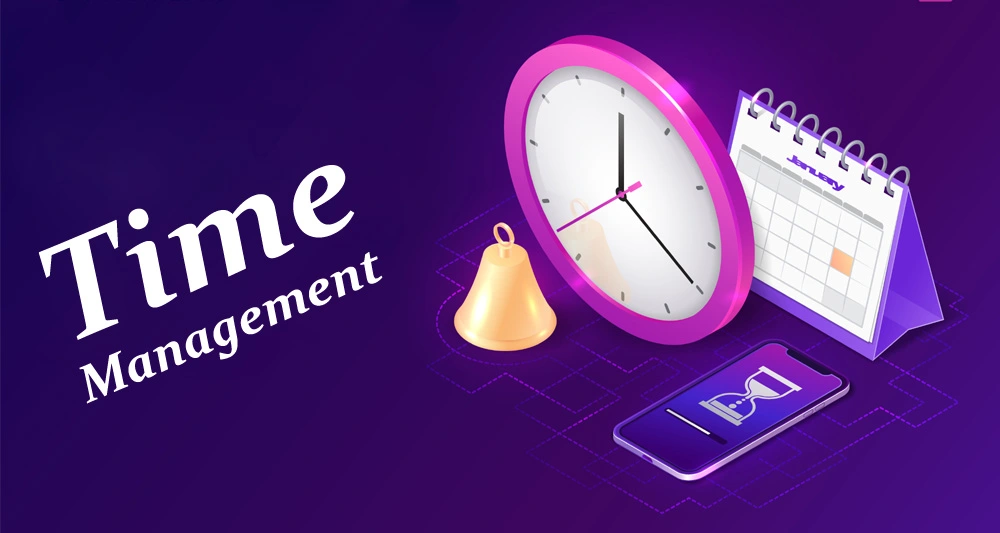What is Time Management
Time management refers to the process of planning and organizing how much time you spend on different activities to achieve your goals and objectives. It involves prioritizing tasks, scheduling activities, and allocating the appropriate amount of time to each task.
Time management is essential for effectively managing your personal and professional life. It helps you to be more productive, reduce stress, and achieve your goals efficiently. With proper time management, you can balance your work and personal life, make time for things that matter, and avoid procrastination.
Effective time management requires setting goals, identifying priorities, creating a schedule, and sticking to it. It also involves eliminating time-wasting activities, delegating tasks, and taking breaks to avoid burnout. Time management is a skill that can be developed and improved with practice and discipline.
Why Time Management is important
Time management is important for several reasons:
- Increases productivity: Effective time management helps you to prioritize your tasks and allocate your time efficiently. As a result, you can accomplish more in less time, which increases your productivity.
- Reduces stress: Proper time management enables you to work smarter, not harder. When you manage your time effectively, you can complete your tasks without feeling overwhelmed, which reduces stress.
- Improves decision making: Time management helps you to make better decisions by giving you a clear overview of what needs to be done and when. It helps you to avoid hasty decisions that can lead to mistakes.
- Enhances work-life balance: Good time management helps you to balance your work and personal life. When you manage your time effectively, you can complete your work within your regular working hours and have more time for your personal life.
- Increases opportunities: Effective time management helps you to take advantage of opportunities as they arise. It allows you to plan ahead and be prepared for unexpected opportunities that might come your way.
- Boosts self-discipline: Time management requires self-discipline and self-motivation. By practicing good time management, you can develop these skills, which can help you in other areas of your life.
Types of Time Management
There are various types of time management techniques that individuals can use to better manage their time and increase productivity. Here are some of the most common types of time management:
- Prioritization: This involves identifying the most important tasks and focusing on completing them first.
- Pomodoro technique: This involves breaking work into 25-minute intervals, called pomodoros, with short breaks in between.
- Time blocking: This involves scheduling specific blocks of time for different tasks throughout the day.
- Getting Things Done (GTD): This involves organizing tasks into different categories based on their level of urgency and importance.
- Eat the Frog: This involves tackling the most difficult or unpleasant task first thing in the morning, to get it out of the way and build momentum for the rest of the day.
- The Eisenhower Matrix: This involves categorizing tasks based on their urgency and importance, and then prioritizing them accordingly.
- Single-tasking: This involves focusing on one task at a time and avoiding multitasking, which can decrease productivity and increase stress.
- Time logging: This involves tracking how much time is spent on different tasks throughout the day, to identify areas where time can be better managed.
Different time management techniques work better for different individuals and situations. It’s important to find a technique that works for you and stick to it consistently to see the best results.
Time Management Skills
Time management skills refer to the ability to prioritize tasks, allocate time effectively, and manage one’s schedule in a productive and efficient manner. Good time management skills can help individuals achieve their goals, reduce stress, and improve work-life balance. Here are some tips to improve your time management skills:
- Set goals: Identify your priorities and set specific, measurable, achievable, relevant, and time-bound goals.
- Prioritize tasks: Determine which tasks are most important and urgent, and focus your time and energy on completing them first.
- Create a schedule: Use a planner or calendar to plan your day, week, or month, and allocate time for each task based on its importance and urgency.
- Avoid procrastination: Don’t delay important tasks or wait until the last minute to start working on them.
- Break down tasks: Divide large or complex tasks into smaller, more manageable steps to make them less daunting and easier to complete.
- Eliminate distractions: Avoid distractions such as social media, emails, and phone calls while working on important tasks.
- Take breaks: Take short breaks to recharge your energy and focus, and avoid burnout.
- Learn to say no: Don’t overcommit yourself or take on too many tasks at once. Learn to say no when necessary.
- Delegate tasks: If possible, delegate tasks to others who can complete them more efficiently or effectively.
- Review and adjust: Review your progress regularly, and adjust your schedule or priorities as needed to stay on track and achieve your goals.
How to manage time in best way
Here are some tips to help you manage your time in the best way:
- Set specific goals: Identify your goals and prioritize them according to their importance. Set realistic deadlines for each goal.
- Make a schedule: Use a planner, calendar or a digital tool to create a schedule that includes your goals and deadlines. Be sure to allocate sufficient time for each task.
- Prioritize your tasks: Identify the most important and urgent tasks and prioritize them. This will help you stay focused and avoid procrastination.
- Avoid distractions: Eliminate or minimize distractions as much as possible. This includes social media, emails, phone calls, and other interruptions.
- Take breaks: Taking breaks is essential to avoid burnout and stay productive. Schedule short breaks in between tasks to rest, relax, and re-energize.
- Learn to say “No”: Avoid taking on too many tasks at once. Learn to say “no” to requests that do not align with your goals or priorities.
- Delegate tasks: If possible, delegate tasks to others who are better equipped to handle them. This will help you save time and focus on your own priorities.
-
Review your progress: Regularly review your progress and adjust your schedule as necessary. This will help you stay on track and make necessary changes to achieve your goals.

























+ There are no comments
Add yours